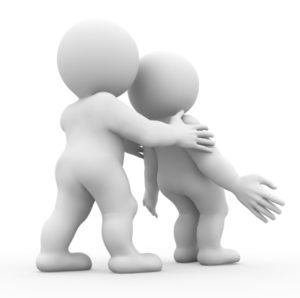Substance Abuse acts as Self-Medication to Manage Loneliness, Anxiety and Depression
Substance abuse acts as self-medication for millions of young people who are persistently depressed from the ages of ten to twenty four. According to the Journal of the Academy of Child and Adolescent Psychiatry, (2021), chronic depression in these formative years is the leading cause of adult anxiety and substance abuse disorders.
You may think that this can’t be right. How can children as young as ten years of age be going through such serious depression that they grow up using substances such as alcohol, weed, psychedelic drugs, and opioids. But it becomes more understandable if we recognize the loneliness among young people who don’t feel securely connected to a family member, friend, teacher or coach. Some young people are enmeshed with family members and aren’t allowed to develop their individuality, so substance abuse acts as self-medication for dampening down the yearning to be separate without losing the relationship completely. Others feel trapped in their families where the parental relationship is maintained only through that child – so substance abuse acts as self-medication for managing the anger and resentment about the obligation to keep parents together and whole.
Substance Abuse Acts as Self-medication – when the parental relationship is dysfunctional
At the age of 10, and about to enter middle school, Melody missed her dad. He was not at home as much as he used to be. She was daddy’s girl and loved going for rides in the car with him as he went from one building site to the next to check on the projects he invested in. Dad spoiled his princess, making her older brother Devon and her mother Allegra a bit jealous. Now dad seemed to be working away a lot, and she noticed a strain between her parents when they at home during the weekends. Vacations were tense, and on several occasions she heard her mother begging her dad to be home more. She saw her mother suffer but pretend otherwise. Devon started going out with his mates and coming home stoned. Melody felt pressured to keep the family on the straight and narrow and intact. She couldn’t focus on school work, wondering if her mother was sick or would do something silly. Her father didn’t always answer the phone and her brother was AWOL. She was experiencing one of the more serious adverse adolescent experiences (AAE’s) that give rise to serious emotional loneliness (International Journal of Clinical and Health Psychology, 2020).
Substance Abuse Acts as Self-medication – when a young person feels trapped
Melody became anxious and depressed. Her father denied anything was wrong and her mother was silent. Her depression lasted well into her twenties and thirties because she couldn’t live her own life and leave her parents in the precarious situation where they were together-but-not-together in a web of secrecy, denial, pain and tension. Substance abuse acts as self-medication when Melody begins taking her mother’s sleeping pills and then her tranquilizers. It was easy to get weed from the school kids in middle school, and when in high school went to parties and mixed her pills and weed with alcohol binges.
Substance Abuse Acts as Self-Medication – until the emotional pain bursts through
Her school work tanked; her talent in playing the violin was wasted while she slept off her hangovers, took anti-depressants to please her parents and keep their sham marriage alive by ensuring that they worry about her. Melody’s parents were united in wanting to get her back on track at school, pay for her to get therapy and do things she wanted to ease their guilt about failing her. But for Melody, substance abuse acts as self-medication, useful to ease her guilt about leaving them and going to college lest her father set up with his mistress and her mother fall apart. Her twenties were a blur, with increased use of weed and alcohol. Opioids were given out at parties like candy. She often passed out at parties and her parents were called to pick her up. They didn’t see her deep depression and sadness about the family secrets, the pretense and her fear of it all crumbling. For Melody, it was a vicious circle. Substance abuse acts as self-medication, but at some point it is no longer effective. As The Journal of Addiction Medicine (2019) reports, a mix of cannabis with opioids results in higher levels of anxiety and depression in young adults, like Melody.
Substance Abuse Acts as Self Medication – until therapy takes care of the wounds
Melody got herself into individual therapy after she overdosed on the opioids mixed with weed and sleeping pills. Having someone who saw and understood her dilemmas, her fears and her anxieties was calming, validating and grounding. Later she brought her parents in and was relieved that the therapy took the burden off her to manage their mess. The beginnings of family therapy was settling for everyone, where they learned to feel safe enough to stop pretending and be real. Later the parents chose to do couples therapy and work on being honest with one another so that the marriage was viable again. Lastly Devon came in to join the family therapy after he had suffered several bouts of alcohol poisoning. Melody and Devon finally had a space to tell their parents what they had been carrying and how important a functioning family was to them. When Devon felt ready, he too had his own therapy. The process was years in the making, but it worked. The right type of therapeutic medication, targeted to the root of the problematic emotional wounds was treated.
Substance Abuse Acts as Self-Medication – when your parents have opted out of life
Twenty-seven-year old video-game tester Ashraf never cared much about school. He waited till the last minute before doing his assignments. His parents barely commented on his grades or the fact that he rarely got out of bed at the weekends. Ashraf didn’t need to care because his parents never cared enough to hold him accountable. There were rarely any consequences for him at home – or personally – or so he thought! Yes, he loved the complete freedom he had to do what he pleased, when he pleased with nothing asked of him in return.
They weren’t that involved with Ashraf’s schooling or sports when he was at school, and he got through somehow. He didn’t realize that the lack of affection between his parents was odd. They did their own thing, and ensured a lack of conflict by never discussing anything that involved emotions that would threaten the status quo. But Ashraf did care about his mother’s coldness, her sharp tongue, and her apparent lack of interest in what he was doing with his life. His parents had won big on a huge lottery payout and gave up their jobs. Both his parents used substance abuse as self-medication when the novelty of the windfall ebbed away and they were alone in their cocoon with their soporific satellite TV entertainment.
Substance Use acts as Self-Medication – to deaden an unbearable conflict
When Ashraf wanted to engage in a back-and-forth with by his parents so that he could own his mind and develop his sense of personal authority, all he got was money and or silence. There was a big pit of fear and trepidation when Ashraf had to face life after high school. His video game passion was an escape and a good one, but it didn’t ease the dread of being out in the world with no foundation. Substance use acts as self-medication in such a conflicted place.
At first it was alcohol to get wasted with the boys – to feel macho – and hit on girls. Then it was magic mushrooms at music festivals and video game marathons where the altered state made the games more thrilling. But all the while Ashraf was one of the 18-29-year old youth that JAMA Research Letter June 3, 2020 found had the highest symptoms of psychological distress among all the age groups sampled. His substance abuse acts as self-medication, escalating as the conflict between being dependent on his parents and his wish to fulfil his own potential pressed on him.
He didn’t want to think because that would make him different to them and then he’d have to disown them and support himself. Ashraf’s anxiety and depression flared up as he tried to position himself as an ace video game tester in the on-line market place as the demand for newer and more challenging games emerged. All the things he was afraid of raised their ugly heads and hissed at him – responsibility, time crunches, clear thinking, responsive communications with the companies hiring him as a free lancer etc. The stress was overwhelming. Ashraf’s substance abuse acts as self-medication when he adds weed, edibles and coke to keep him awake when the booze knocked him down.
Substance abuse acts as self-medication and temporarily soothes the rawness of Ashraf’s insides to counter the sting of his mother’s tongue and the cowering silence of his father. Left with no way to feel okay, or worthwhile, the substance abuse acts as self-medication and reduces the symptoms.
He could numb himself out and not deal with the conflict of whether he wanted to be in charge of his own life and deal with the slings and arrows of life, or live without a mind by letting his parents’ money give him a bed to lie on.
Substance Abuse Acts as Self-Medication – until therapy teases out the knots of conflict
Ashraf’s loneliness coupled with anxiety and depression made him feel unworthy until a woman he met at a bar made him feel hopeful. She was the exact opposite of his mother – interested in him, caring if a bit controlling and wanting to be in his life. She was older, wanting to make a nest with him. They married and he was able to resolve some of the dependency on his parents. But then he was tortured with a sense of failure – that he wasn’t getting anywhere with his video game passion and he wasn’t bringing home the bacon. His sleep cycles went haywire, he drank more and used more coke, and on more than one occasion threatened his wife physically when she nagged him to get a job. It was scary to see his violent self and he chose to do therapy for anger management. But the therapy really was about managing his sorrow about missing out on real parenting that would have guided and stabilized him. He was parented in therapy, and he was given the opportunity to find his feet, become more secure and communicate about his emotions to his wife.
Copyright, Jeanette Raymond, Ph.D. 2021
You may also like:



